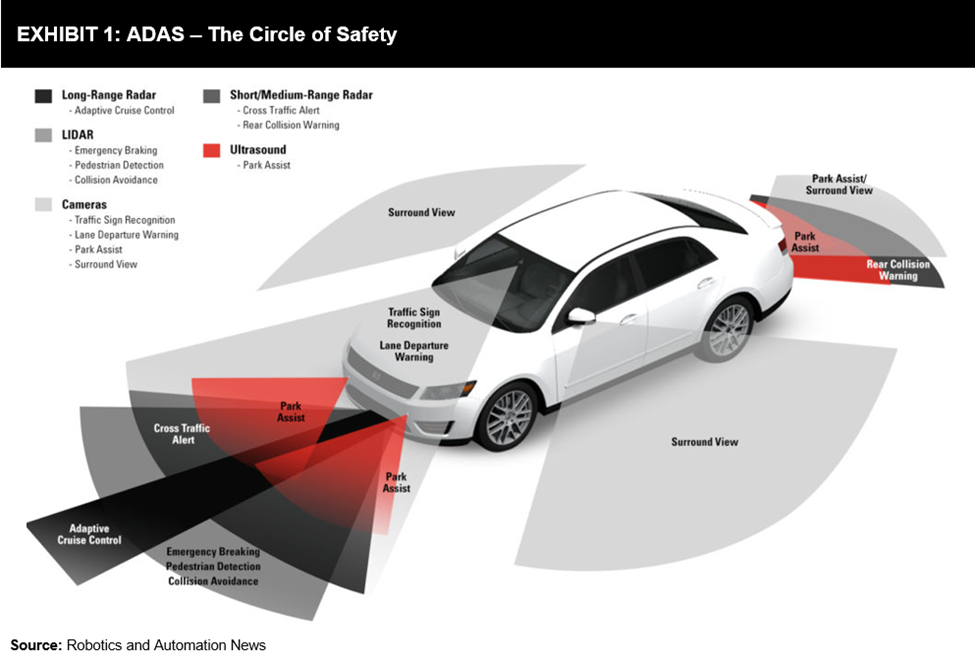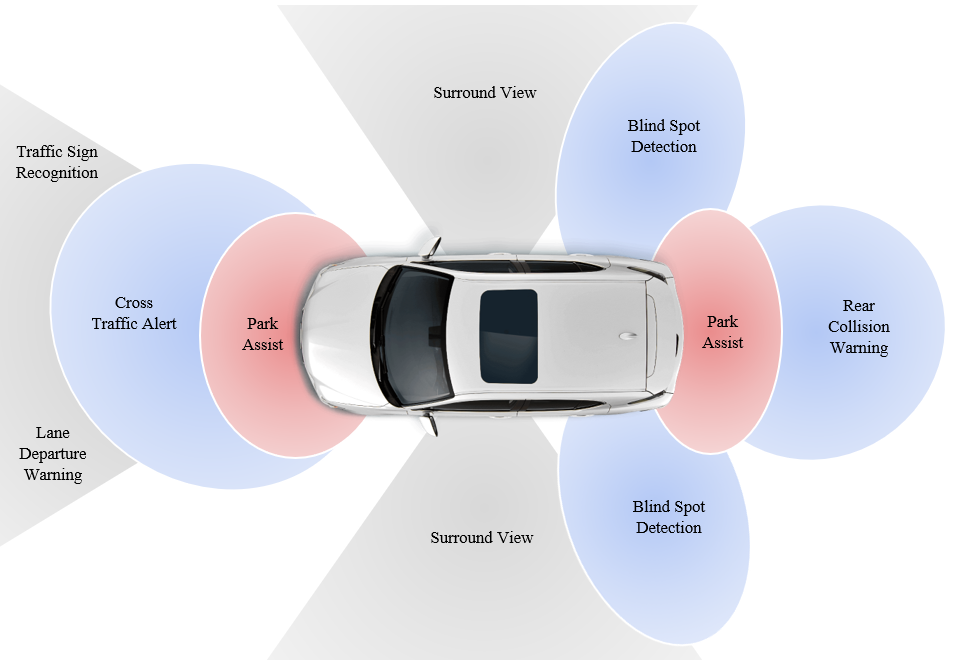ADAS
Advanced Driver Assistance System
Advanced Driver Assistance System (ADAS) uses image processing cameras, radar, light detection, ranging and other sensors to monitor vehicle’s state, motion and stability. The purpose of ADAS is to increase safety and reduce collision possibilities.
Most ADAS systems include Traffic Message Channel, Intelligent Speed Adaptation and vehicular Communication Systems
Passive Assistance Systems
Passive ADAS systems monitor the environment around the vehicle. With lights, message centers, beeps and sometimes vibrating parts of the vehicle, the driver can be warned. These systems use live camera display and graphics to aid the driver.
LDW - Lane Departure Warning
RCW - Rear Collision Warning
AVM - Around View Monitoring
BSD - Blind Spot Detection
FCW - Front Collision Warning
NVS - Night Vision System
Active Assist Systems
Active ADAS systems will slow, stop or turn the vehicle from an object or situation using the electronic power steering module, electronic braking, ABS modules and throttle controls in the Powertrain Control Module. Active assists systems can also use sensors to park the vehicle without the driver or adjust headlights to steering inputs.
AEB - Automatic Emergency Braking
ACC - Adaptive Cruise Control
LKA - Lane Keep Assist
AFL - Adaptive Front Lighting
AP - Assisted or Automatic Parking
FCA - Front Collision Avoidance
Most Common Reasons to Calibrate ADAS
Collison Repair
Removal of the Front or Rear Bumpers
Window Replacement
Mirror Replacement
Hood Replacement
Trunk Replacement
Module or Component Replacement
Suspension Work or Replacement
Alignments
Sensor Replacements
Without properly calibrated features, the ADAS system will not work properly, often delaying alerts, signals and response times putting the driver, passenger and everyone else on the road at risk.
Call us to discuss an ADAS calibration
757-410-0124




